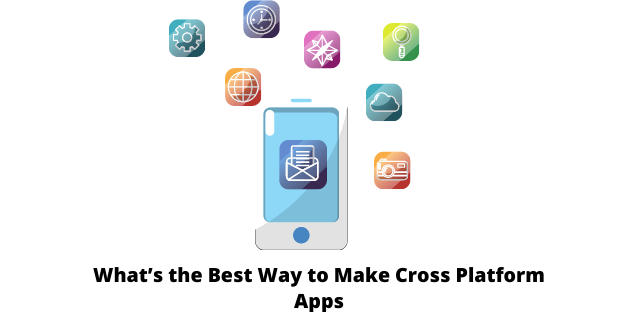A Crucial Decision
There is no simple way to settle on the best application framework for your innovative smartphone app project. The deciding variables may be complex and varied, and you can find yourself making last-minute adjustments to your choice.
There are a few variables in this post to help make your choice simpler and more knowledgeable for all of you who are trying to build a roadmap of how your potential app will work out.
Continue reading to get a rundown on what you might anticipate from the most successful production frameworks.
Is it better to have a native, cross-platform, or hybrid web app?
This is the decision that will determine the whole functionality of your software. Anything, from the features to the user experience to the overall look and sound of the software, is dependent on this vital judgment.
Though native applications provide more improved features and alignment with the operating system, developing cross-platform or hybrid software has advantages. We’ve compared the variables that will be influenced by your decision below to give you an indication of how your app will work out.
The Interface
Apps with an appealing user interface and the ability to offer a smooth user experience have a greater probability of success than those with a disorganized design.
The user interface, even more than the app’s actual features and functionality, determines how the customers can communicate with the app depending on the use flows you’ve developed.
Cycle of Use
For a native app, you should have a usage cycle that represents the overall architecture of the OS. This allows the usage loop more seamless and understandable in terms of the OS, and it will allow for better integration and usability since the customers would be familiar with how the software functions.
Choosing a cross-platform approach would necessitate the creation of a user interface that can run in the same manner through all devices without missing functionality and capabilities.
Market and target demographic
While native apps can engage with the rest of the operating system and access built-in capabilities and resources more conveniently, developing a hybrid or cross-platform app helps to produce the same capabilities across all devices.
The choice is influenced by the demographic and user base that you plan to reach for your proposal.
Priorities in the Market
If you want to target a market where a specific operating system is more widely accepted and used by a larger percentage of the demographic trends, a native option is preferable to a cross-platform app.
If the market is fragmented and you want to reach a larger audience, a cross-platform or hybrid web app is a better option.
Differences in Phones
The same is true for the types of devices you intend to target. If you want your app to work on a wide range of devices with differing capabilities and resources, creating a hybrid mobile application should be your first option.
If you want to target a particular segment of available devices, you can go with native apps.
Implications for the Budget
Basically, the final decision is determined by the budget you are willing to devote to your project. This is due to the fact that designing many native applications can be considerably more expensive than developing a single cross-platform app.
Through a native app, you can guarantee that the same capabilities are available on all compatible computers. Developing a cross-platform app can restrict the number of features you may include while growing the range of functionality you can include.
External Assets
Another factor to remember, depending on the expenditure, is whether the app is linked to a backend server or resource for proper operation. If the app is self-contained, a native app could be preferable; if the product needs an additional resource, a cross-platform version is preferable.
As previously said, selecting a design framework for your software is not a simple task. We hope that the considerations provided in this list can assist you in making an informed decision. Best of luck with your future endeavors.
